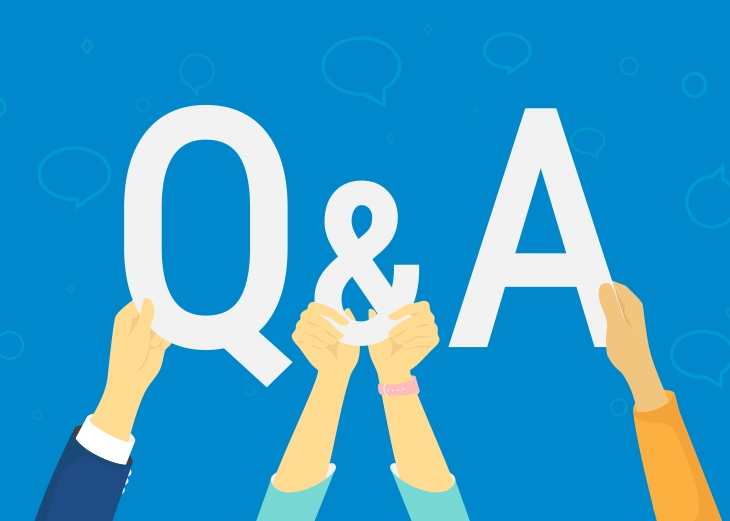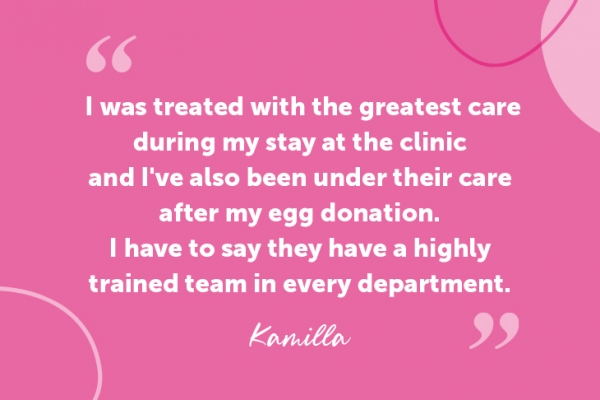This information was correct at the time of publishing. It may not reflect our current practices.

Is 2020 the year that you’ll change lives through egg donation? We know you’ll have lots of things to consider before you apply. So, we’ve collated and answered some most asked questions, which you may find a useful read if you’re thinking about becoming an egg donor this year.
Remember we’re always happy to help and will give you as much information as you need to decide if egg donation is right for you. If you have a question that’s not listed below, get in touch with us with no obligation on 0161 300 2734 or email donate@manchesterfertility.com.
Egg donation involves six simple steps: Your first appointment for initial screening tests, counselling, doctor consultation, prep appointment to start ovarian stimulation, egg collection and then one final screening following your donation. You can read this blog post where each of these steps are explained in detail.
You aren’t ‘paid’ for your eggs when you become an egg donor in the UK. What you receive is £750 compensation, to cover your time and any expenses associated with donating, such as travelling to and from our clinic.
You’ll receive your compensation when your donation cycle is complete, after your eggs have been collected.
Yes! Lots of women who have IVF choose to donate eggs at the same time. This is called egg sharing. It helps women who need donor eggs and makes IVF more affordable for you too. Instead of donor compensation, your IVF cycle will be carried out at a reduced cost. You can learn more about egg sharing and what’s involved here.
Having a medical condition – even one for which you take regular medication – doesn’t necessarily exclude you from being an egg donor. It’s always worth checking with us before you apply. It depends on the sort of condition it is and whether it could be passed on to any child born from your eggs.
We’ll always seek clarification as to the nature of the condition and its potential impact on your health and the health of a donor-conceived child, before accepting you as an egg donor.
We accept women onto our egg donor programme who are aged 18-35. We don’t accept women older than this because fertility – and therefore egg quality - typically declines from your mid-30s.
Yes, finding out that a child has been born is one of the most rewarding parts of egg donation! We’ll be able to tell you if your recipient has achieved pregnancy from your eggs, the year of the baby’s birth and its gender.
No. Although egg donors and recipients are anonymous to each other – the person choosing you as their donor is not given any identifying information – you are identifiable and traceable to any child that’s born.
This is so donor-conceived people have the chance to find out about their biological origins in future, if they wish to know. They can apply to the HFEA for information about you as their donor, once they reach the age of 18.
We’ll talk to you in detail about this at your pre-donation counselling session, so you understand the future implications of egg donation before you consent.
No, no parts of the egg donation process are painful. When we collect your eggs, you will be given a local anaesthetic and oral sedation so you’re conscious and comfortable throughout, under the care and expertise of our clinic theatre anaesthetists.
If you currently smoke – including if you use e-cigarettes – you can’t be an egg donor because of the effects of nicotine on fertility and egg quality. But if you have quit smoking at least three months ago, you can donate your eggs because that’s enough time for you to be nicotine free.
The fertility medications we use are very safe, the same as are used in IVF. You’ll be given tailored doses unique to you for a healthy and safe ovarian response, and we’ll keep a close eye on you throughout to check your wellbeing. If you’re nervous about self-injecting your medications, don’t be! Our nurses will teach you exactly what to do and are always here to support and guide you if there’s anything you’re not sure about.
We know it is a big decision and we understand you may have more questions on becoming an egg donor. If you would like to talk to our donor team, then you can complete our online application form here – it only takes a couple of minutes – and we’ll be in touch or you can call us for more information on 0161 300 2734.
Donating your eggs to help someone begin their fertility journey is one of the most selfless acts of kindness. At Manchester Donors, we’re lucky eno...

Start your journey to become an egg donor. Give the gift of life today!